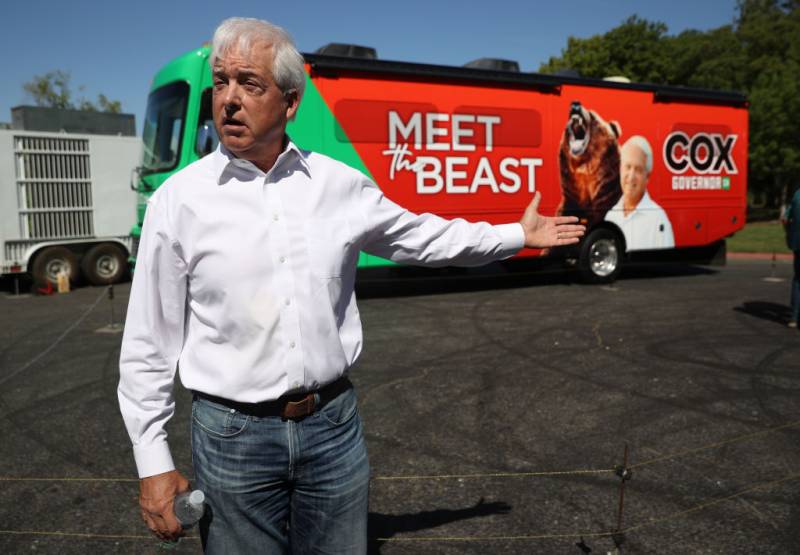John Cox, a Republican candidate for California governor, said Monday that he would force homeless people into mental health or addiction treatment before providing them with housing as part of his effort to cut homelessness in half within five years.
In his second bid for governor, Cox also said he would step up enforcement against people living on the streets and work to speed housing construction. If elected, he would likely face fierce resistance to many of his proposals in the Democratic-controlled state Legislature.
“If someone is just insisting that they can live on the street, they either have to be arrested and put in jail or they have to be arrested and put into a place where they can get the treatment they need,” he said in an interview. “If they don’t want either of those, they can certainly leave California.”
Cox, who made a fortune in real estate, is running in the forthcoming recall election of Democratic Gov. Gavin Newsom. He ran against Newsom in 2018 and lost badly. He’s never won political office despite numerous attempts. This time, he’s one of several Republicans running, including former San Diego Mayor Kevin Faulconer, who is expected to release a homelessness plan Tuesday.
A date has not yet been set for the recall election.
